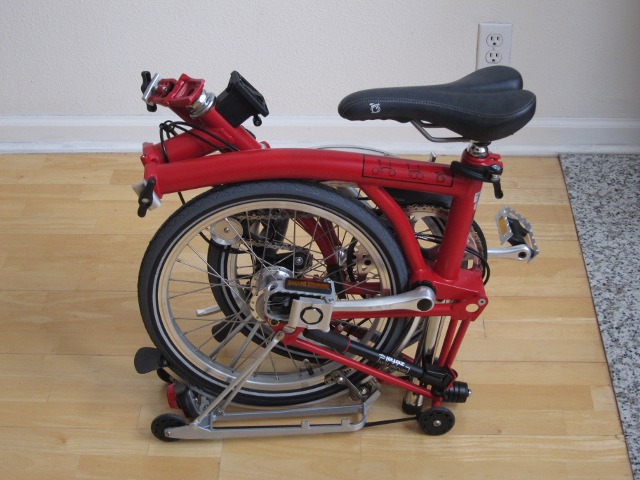Not going to DebConf11
 I’m sad to report that I won’t be attending DebConf11. I’d have loved to go, but unfortunately I couldn’t get the time off work due to various schedule conflicts. I’ll have to find another excuse to make it to Bosnia at some point.
I’m sad to report that I won’t be attending DebConf11. I’d have loved to go, but unfortunately I couldn’t get the time off work due to various schedule conflicts. I’ll have to find another excuse to make it to Bosnia at some point.
onak 0.4.0 released
I don’t normally mention the PGP keyserver I’ve been working on for the past 9 years, but there are a few keyserver related comments I’ve been meaning to make that prompt me to do so this time.
onak is the keyserver powering the.earth.li (AKA wwwkeys.uk.pgp.net).
Back in February I finally enabled hkps (HKP over SSL) access to it as I
promised dkg I would do back at
DebConf10. I also turned on IPv6.
Most of the active keyservers out there are running
SKS. I think there might be a few
OpenPKSD instances as well. If you’re
running SKS please ensure that you have at least one address in your
mailsync file, so that you send key updates to the non SKS keyservers
out there - it seems that SKS requires the receiving keyserver to send
out updates via email, rather than each server sending out any updates
it processes to its mailsync peers. Feel free to add pgp-public-keys
at earth.li - no need to contact me to do so (but you can drop me a
line if you want me to send you mail updates back).
Also in the past there was a pgp-keyserver-folk mailing list, originally
on flame.org, then on alt.org. Both of these have been dead for a while.
I created a local
pgp-keyserver-folk
some time ago, but never publicised it. I believe the SKS lists are
fairly active, but limited to that community, so it would be nice to
have somewhere that was keyserver agnostic that admins could talk to
each other.
Anyway. onak 0.4.0. Largely fixes to keyd, which is a backend daemon
that handles talking to the key database. This is particularly useful
for large/busy keyservers. Also a couple of fixes that make the db4
backend a lot more reliable (especially with queries that return lots of
results). And various other minor cleanups. If you’re one of the 3
people running it you probably want to upgrade; updated packages have
already been uploaded to Debian unstable.
Why Linux? (Part 7: Support)
(This is part of a series of posts on Why Linux?)
This is probably a non-obvious reason to run Linux to most people. One of the complaints I’ve heard in the past is the lack of support for Linux. It’s not really relevant to running it on a work desktop (where support is presumably from some central IT organisation), but I believe it’s a red herring. Support in the Free software world can exceed that in the proprietary by an impressive margin. And that can turn out to be useful at work, even if you do suppose the existence of central IT.
The support I’ve received for Linux and applications under it has been, on numerous occasions, excellent in a way I feel I could never expect from the commercial software world. And when it isn’t, I have the choice of whomever I want to try and fix my problems, rather than being stuck with no options.
I have found that if I am polite, and provide useful information, and patient, I can talk directly to the developers who make the software I use. If I have a patch they will often take it from me, or use it as a basis for the final fix. If they are no longer available, or too busy, then because I have the source I can find someone else to look at the problem, or do so myself.
The chances of most large proprietary software companies giving me the time of day is low. I don’t understand why small businesses think that Windows is a safer choice due to being able to get support from Microsoft.
Again using experience gained at Black Cat, at one point we had a problem with IPv6 routes being updated. Signs pointed to Quagga, Simon collected relevant information and got in contact with the Quagga devs. They investigated, realised it wasn’t a problem with their code, and then proceeded to find the issue in the Linux kernel, produce the fix and pass it upstream. Within hours of us reporting the problem. I’ll accept that’s an exceptional response that can be matched within the proprietary software world, but not without a hefty support contract and I doubt you would have got a response other than “Not our fault, talk to the other supplier”, or maybe a workaround at best.
More recently, I had a conversation about Linux and discard support, with one of the people who’d worked on it. Very interesting from my PoV, useful to my work (I ended up fixing something in our code base that led to the Linux support Just Working with our product) and I believe was useful to that developer too, in terms of providing some insight to the other side of the problem. I don’t get that kind of access to proprietary software developers - while it could be argued that I know a lot of Free software people, I also know a lot of other programmers and they’re just not able to be so open about things, so both sides lose out.
Or my new laptop’s ethernet wasn’t supported by the kernel in squeeze. I filed a bug requesting the driver be added (and pointing to the patch). The week I wrote the first draft of this article I saw confirmation that this had been done, and will be part of the final squeeze release. I think that’s pretty impressive. (Thanks, Ben.)
Another 2 wheels
It’s my birthday, so a week ago I bought myself a present:

The office is 4.5 miles from the BART station, so up until now I’ve been taking a bus. Unfortunately the timings aren’t that frequent (every 45-60 minutes). Plus I haven’t been doing any exercise since I moved out here. Now it seems to be getting drier I figured it was time to sort out a bike. I wanted something flexible, and have heard nothing but good things from the Brompton owners I know, so that’s what I ended up with. I’m very happy with it; despite my lack of recent exercise it’s pretty easy to ride. I’ve actually found it doesn’t take any longer than taking the bus, and is sometimes quicker, because I avoid having all of the waiting around for it.
I bought it from Warm Planet Bikes, who were incredibly helpful. They had a selection in store that they let me try (and quite a few other models of folding bikes too) and when I made my decision it turned out they could do the customizations I wanted in shop. So rather than me having to order it and wait a month I was able to cycle away that same evening! Full marks to Matt for staying late to sort me out (plus he’s a Brompton owner too).

Notes on moving to America
I’ve been out here for 6 months now. At the point in time I was coming out I was pointed at Andrew Pollock’s On bootstrapping oneself in the US. I figure some extra data may be useful for anyone considering the same. I moved from the UK rather than Australia.
Banking
I sorted out my US banking long before I ever moved here; in fact I kicked the process off shortly after I accepted the move offer. Matthew had recommended the HSBC approach, so I did that. This meant when I arrived I had a credit card, debit card and check book. They also allow me to do really easy online transfers between my US and UK accounts.
Mobile phone
My mobile phone was something else that was dealt with before the move. I bought a Simple Mobile SIM off eBay. I thought I’d end up moving to a contract once I had a credit record here, but actually the $60/month unlimited tariff seems to be fairly reasonable. Their customer service leaves a lot to be desired, but I’ve sadly come to expect that from phone companies. I’ve got a Google Voice account which is the number I’ve been giving out, so it’s easily for me to switch providers (or redirect things to a VOIP setup for when I’m back in the UK, but I’ve got a writeup to do for that at a later point in time).
Finding somewhere to live
One of my concerns was that it would be hard to find somewhere to live at short notice without any credit history or SSN. This turned out to be ill founded. Both of the managed apartment complexes I looked at were ok with the fact I’d just moved to the country and seemed used to such a setup. The place I went with is privately leased and was a bit more wary, but after a conversation with my US manager (who’d managed me even when I was in the UK) it was fine.
Social Security Number
AKA existing as an entity as far as the US is concern. I was told to wait at least 10 working days after entry before even applying for this, or I wouldn’t be in the system and it could cause delays. I did so and the card turned up within about a week (I had been told up to 2 weeks). Which was good, because work were having problems figuring out how to pay me without one.
You do seem to need the SSN for everything. The only times I can remember needing my National Insurance number in the UK is for new jobs and my E111 application.
Driving licence
I haven’t ended up buying a car here; I pretty much don’t need one most of the time and I’ve signed up to ZipCar for easy short term rentals - they’re happy to take a UK licence for sign up. However I figured getting a licence here was a good idea in case I did decide to get a car, and even just for ID (I kept having to point people at the DOB on my UK licence - everywhere here seems to card). Applying for a licence ideally relies an SSN, so I did so a few days after I’d got that. I did the car + motorbike written tests and got my learner’s permit. I applied for the car theory test the same day, but the first available slot was about 6 weeks later. During this period I did the CMSP basic RiderCourse, which meant that when I passed the car test I was also fully entitled to ride a motorbike here.
Other useful notes
As I live in the Bay Area I got myself a ClipperCard - it’s like Oyster except without the clever discounts. Works on more agencies though and helps avoid having to sort out change. For broadband I went with Sonic.net - I’m in their ADSL2 coverage area so I’m getting a reasonable 17Mb/s connection. The other options were AT&T ADSL (slower) or Comcast cable (evil). I’ve had zero problems with Sonic; It Just Works.
Also I sort of ended up with a trial run thanks to DebConf10 being in New York. Due to the way timings worked out this took place only a few weeks before my move to SF was scheduled. My banking and phone were already in place by this point, so it allowed me to check both were working ok. They were, and I didn’t really expect them not to be, but it was a nice safety net to have for the move proper.
Overall the main issue I had was that a lot of things were dependant on other things; get the SSN, get a learner’s permit, apply for the practical test, wait for the licence to actually turn up etc. It probably took over 3 months for everything to actually happen and come through in the post. I can tell when I actually started to exist in the system because Capital One began junk mailing me about whether I want a credit card with them…
subscribe via RSS